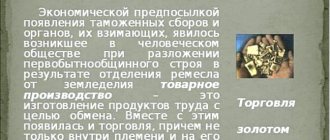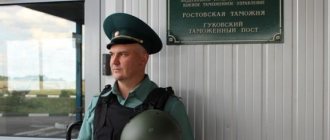Photo source fanjianhua/freepik
A customs officer is someone who controls the movement of people, the transportation of goods and vehicles across the state border. On the territory of Russia, the first document concerning the work of customs services was drawn up back in 1649.
Customs officer - who is this?
First of all, a customs officer is a civil servant who must correctly check and prepare documents for imported and exported goods. He also checks the documents of citizens seeking to leave or enter the country.
This profession has a large range of responsibilities, so it has divisions into:
- passport control workers;
- international customs officials;
- checkpoint workers, etc.
If you cross the border of a state, you will definitely interact with customs officers. They can easily be found at international railway stations, airports and harbors.
Photo source wavebreakmedia_micro/freepik
Short description
A customs officer is a person who controls everything that crosses the state border. The work is not too complicated, but quite interesting, because it is necessary to check cargo and people, preventing the import of contraband, narcotic substances, uncertified medications, and other dangerous food and non-food goods into the country.
Unfortunately, this profession does not have a very good reputation, because it is believed that customs officers receive bribes and are corrupt. In fact, this is not entirely true, because people who choose this activity daily stand guard over the established legislation, protecting the country from economic losses and the import of dangerous goods.
What do customs officers do?
They perform work that includes:
- Inspection of cargo and citizens when crossing the border.
- Detection of contraband.
- Verification of documents established by law.
- Accounting for confiscated goods.
- Participation in anti-terrorist operations.
- Work at checkpoints.
What customs officers do can be classified as monotonous work, since they must work strictly according to established regulations.
Despite this, the work of a specialist is associated with some risks and temptations . The customs officer profession is one of the three most corrupt in Russia. This is due to the fact that they directly interact with carriers who are ready to pay a bribe for transporting illegal goods.
The most common method used by unscrupulous customs officers is that the goods in the cargo are registered as another, with a lower duty. Part of the saved amount is given to the customs officer in the form of a bribe.
Not only the state treasury, but also the health of citizens suffers from unaccounted for or low-quality cargo. Drugs, weapons, and various toxic and poisonous substances can be imported under the guise of products.
Also, customs officers do everything related to the destruction of sanctioned goods - from searching for them to complete disposal.
Where to get a job after graduation?
Customs universities operating in Russia annually graduate young graduates in the field of customs. Most educational institutions are concentrated in the capital of Russia and St. Petersburg. However, you can also get a profession in the regions. The duration of training ranges from 4-6 years. The cost of training is purely individual and determined by the educational institution individually.
In the city of Moscow, 21 universities are training future employees of the Federal Customs Service.
Having received a specialty, a graduate often cannot decide on the choice of position. The following positions are most popular among graduates of specialized educational institutions:
- FCS inspector;
- Foreign trade specialist;
- Declarant;
- Customs Broker;
- Customs Manager;
- Customs carrier.
For those who want to stay to work at the university and develop within the walls of the educational institution, the Department of Customs Affairs will be an ideal place to work.
The choice of positions is quite large. At the same time, a young specialist can find a job both in the Federal Customs Service and outside it. After studying, he will be able to get a job in the federal service or consult business representatives regarding the transportation of various goods across the border.
The vast majority of higher educational institutions that train specialists to work in the Federal Customs Service set the goal of teaching students all the necessary disciplines required for further work. Upon graduation, the graduate undertakes to work in the FCS field for 3 years.
This condition is mandatory only for state-funded students! This requirement is put forward by the state, which invests financial resources in the training of specialists.
The graduate will begin his acquaintance with the profession from the position of inspector or declarant. After this period, some specialists decide to remain in the profession on a contract basis, while others begin to look for work outside the customs service.
The position of manager for work with customs authorities is provided for in the staff of every large company associated with foreign economic activity. The choice of the profession in question turns out to be beneficial and correct for those who think for the future and want to develop and grow in their position. The career ladder in the Federal Customs Service is very attractive for many young professionals.
Requirements for the profession of a customs officer
The customs service has special requirements for anti-corruption activities.
As with any public service, only the following are allowed into customs services:
- adult citizens of the Russian Federation (dual citizenship excluded);
- have undergone special training or have a legal education;
- served in the army (for men);
- capable and physically healthy;
- no criminal record.
To work you need:
- Communication skills.
- Ability to resolve conflict situations.
- Observation.
- Psychology skills and the ability to recognize a suspicious passenger are welcome.
Also, a customs officer must have perfect knowledge of the laws of the Russian Federation, regulations and orders, orders of superiors in his area of competence.
A customs officer is someone who combines responsibility for the life and health of citizens and routine paperwork. The results of his work are assessed not only by his superiors, but also by supervisory authorities, including the prosecutor's office, the Ministry of Internal Affairs and the investigative committee.
Required personal qualities
The work of a customs officer is always associated with some risks and imposes certain requirements on the representative in terms of psychology and personal qualities. Due to the specific nature of the activity and the large number of temptations, a fairly high level of honesty, integrity and patriotism will be required. In addition, the mandatory personal qualities of a customs officer must be:
- Observation and attentiveness, good reaction.
- High level of communication skills and diplomacy.
- Developed intuition.
- Accuracy and punctuality.
- High stability in stressful situations and tolerance.
- Responsibility and diligence.
- Ability to assimilate and systematize large amounts of data.
Sometimes it can be quite difficult to determine visually whether a person is carrying prohibited cargo, and very often well-developed intuition comes to the rescue An experienced customs officer can get ahead of this by some signs known to him. A good knowledge of psychology and your own “sixth sense” can help with this.
In addition, you will need a thorough knowledge of all regulatory documents and the legislative framework, rules for maintaining documentation, and mastery of a certain speech style. Thus, everyone who is interested in the question of whether it is worth going to study in the field of customs should develop the necessary personality qualities and psychological skills.
Demand for the profession and salary of a customs officer
There are always vacancies in customs, so young specialists do not have to worry about unemployment. Thousands of cargo, hundreds of thousands of passengers and vehicles move across the border every day.
Customs officers are also required in brokerage companies that make money from transportation.
Despite the importance of the profession for society, specialists do not receive salaries that correspond to the level of their importance.
- The minimum salary is from 17 thousand rubles.
- The maximum salary depends on length of service, job responsibilities and place of work. The head of the customs department can count on a salary of 50 thousand rubles .
- In remote regions, senior officials can receive up to 200 thousand rubles.
Customs employees have government benefits, can retire earlier and receive a larger pension.
Story
The profession has been known since ancient times. Even though thousands of years ago it was not represented by a modern specialty, guardians of the borders of countries, empires and occupied territories have always occupied a special place in society. The profession appeared synchronously with the formation of the first centralized states. It is impossible to name the exact date, but this definitely happened at the beginning of the development of world society. The impetus for the development of prototypes of modern customs came from the beginning of trade between countries.
Hundreds of years ago, caravans with goods passing through the borders of countries were subject to taxes. This was necessary to ensure the replenishment of the treasury. In Rus', customs began around the 9th century, when duties and a trade tax - “myto” - were introduced in the principalities. The collectors of myt were called “mytniks”. It is interesting that in modern Ukrainian language a customs officer is a mitnik.
Pros and cons of the customs officer profession
Due to the nature of their work, customs officers develop their observation, memory and communication skills well. With sufficient experience, these qualities, as well as knowledge of law and foreign economic activity, can contribute to obtaining a leadership position in business.
The profession of a customs officer has both advantages and disadvantages.
Pros:
- prestige;
- official employment, white salary and benefits;
- early retirement and supplement to pension payments;
- skills development.
Minuses:
- emotional tension and stress;
- high responsibility;
- corruption risks;
- reports and implementation of planned indicators;
- low salary;
- a large amount of paperwork.
What kind of specialty is this?
Customs business is a set of methods and tools whose task is to ensure customs tariff regulation measures. All means are designed to impose bans and restrictions on goods transported across the border, as well as vehicles, in case of violations. To better understand what customs business is, studying the functions of a Federal Customs Service employee will help.
What kind of profession is “customs officer”? Watch the video story:
Complete training
The Interregional Academy of Industrial and Construction Complex (MASPK) invites students to take advanced training courses in the field of “Customs Operations Specialist”.
The Academy's resources make it possible to remotely train thousands of specialists from all regions of Russia. Our training programs are compiled with the participation of leading experts in their field and are regularly updated, which allows our graduates to successfully implement themselves in the profession. The National Academy of Modern Technologies (NAST) implements additional education programs and invites specialists to undergo professional retraining in the field of Customs Affairs. The Academy's training programs involve the use of distance technologies, which allows our students to receive education without interruption from their main activities in the most comfortable mode. Author of the article
Yurkin Alexey
Admission to a technical school or college after 9th grade
Are there technical schools or colleges that teach this profession, and where can you go after 9th grade? Contrary to the popular belief that it is quite possible to enter customs after 9th grade, this is not so. There is a simple and understandable explanation for this.
According to State educational standards, the specialty in question belongs to the field of higher professional education. Therefore, you can become a student at a specialized educational institution only after completing 11 grades of school.
(votes:
1 , average rating: 5.00 out of 5)









